The orientation of "arranging and allocating space reasonably to focus on developing cultural industry, entertainment industry, and tourism to become a spearhead economic sector. Prioritizing the preservation, exploitation, and effective promotion of a number of cultural spaces to serve the development of cultural industry" is proposed in Conclusion No. 80-KL/TU on the Hanoi Capital Planning for the period 2021 - 2030, with a vision to 2050 and the Project to Adjust the Hanoi Capital Master Plan to 2045, with a vision to 2065. This can be seen as a "compass" for culture to hold an important position and role in the Capital Planning, and at the same time, be institutionalized by preferential and outstanding mechanisms and policies in the draft Law on the Capital (amended).
According to the Report of the Law Committee of the National Assembly, the regulation on developing cultural industry and tourism into a spearhead economic sector, especially cultural tourism in the draft Law on the Capital (amended) is a policy proposed in Resolution No. 15-NQ/TU of the Politburo . In recent times, the city government has issued many policies and guidelines emphasizing the importance of developing cultural tourism, taking cultural tourism as the basis and foundation for developing other types of tourism and considering this as one of the key tasks to turn the capital's tourism into a spearhead economic sector.
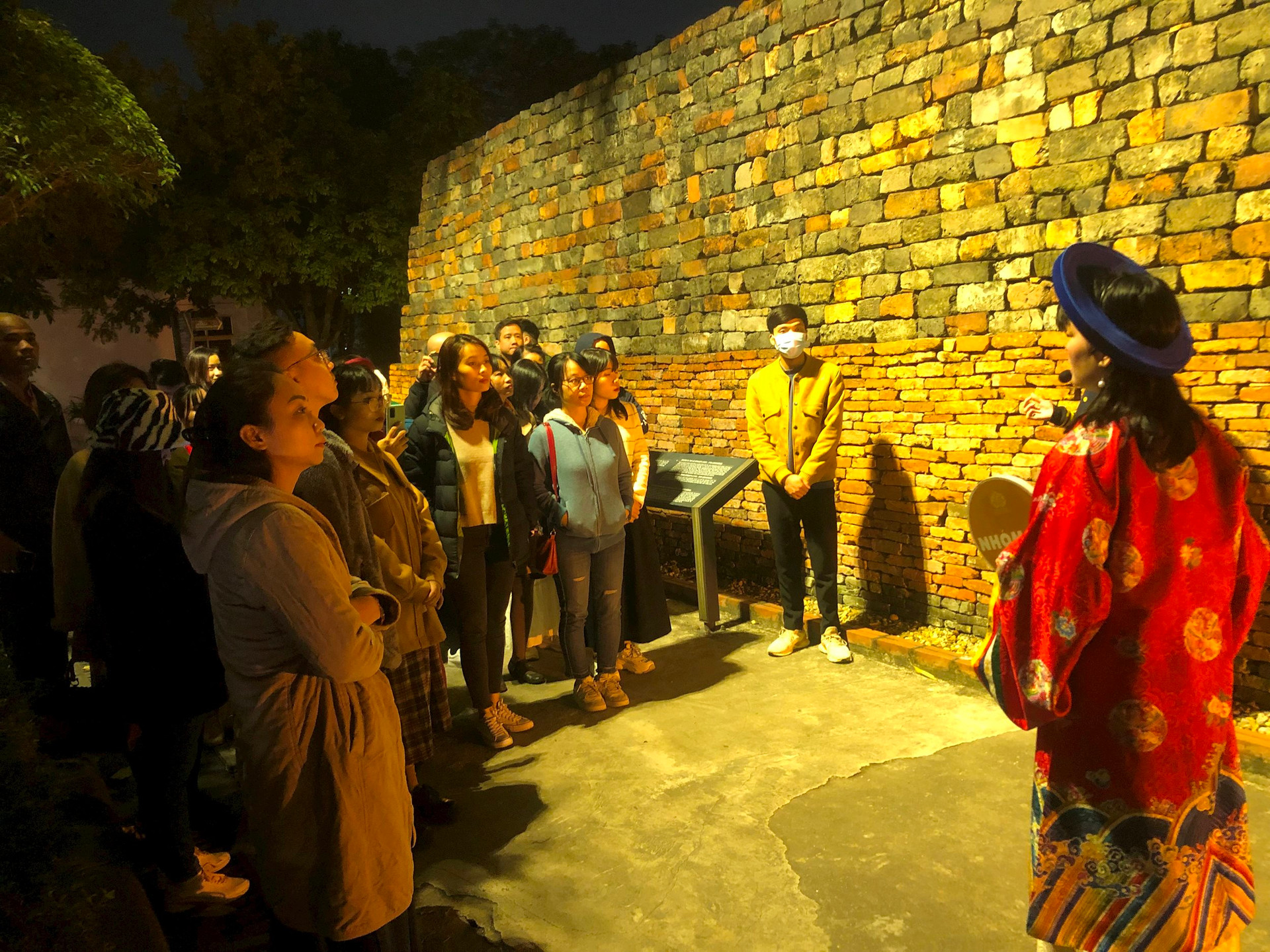
Night tour product at Thang Long Imperial Citadel.
The highlight of the tourism development policy for the 2023-2025 period is to promote attracting strategic investors to build, invest in, and develop tourist accommodation facilities, 4-5 star luxury hotels in urban areas, areas with great tourism potential; attract investors to develop truly professional event centers, exhibition centers, and sports complexes with scale, stature, and unique architecture, which are the city's distinctive highlights.
The draft Law on the Capital (amended) submitted to the National Assembly at the 7th session has added a number of regulations related to tourism development such as regulations on cultural industrial centers, commercial and cultural development zones, investment incentives, etc. The draft law has also been revised to clearly stipulate that the city is allowed to build cultural industrial centers on river banks, floating banks of the Red River and other areas with advantages in terms of cultural space location in accordance with the planning.
At the same time, the City People's Council is assigned to regulate the authority to establish; the order and procedures for establishment; the organization, operation, management measures and preferential policies applied to cultural industrial centers.
This regulation will create conditions to promote the strong development of cultural industries in which the capital has many strengths, taking advantage of cultural space advantages, thereby thoroughly and evenly promoting the cultural market in the city.
In addition, absorbing the opinions of National Assembly delegates discussed at the 6th session, the draft Law also fully added 12 cultural industries to the list of new investment sectors that enjoy incentives according to the provisions of the Capital Law.
According to National Assembly delegate Hoang Van Cuong (Hanoi National Assembly Delegation), mobilizing the private sector to invest in the fields of culture, sports and exploiting heritages for tourism development; in which heritages belong to the exclusive ownership of the State, but the private sector has the right to invest, restore and exploit with the application of new technology will help "revive" cultural heritages, historical relics will be restored and historical and cultural values will be aroused, spread and cultural tourism will become a spearhead industry of the Capital.
Conclusion No. 80-KL/TU of the Politburo also requires "Strengthening decentralization, delegation of authority, and appropriate and effective pilot mechanisms for the Capital", focusing on many areas, including cultural development. Currently, the City People's Committee has issued regulations on the division of responsibilities between the city and district authorities in the restoration and embellishment of relics.
The draft Law on the Capital (amended) clearly shows the content on applying the public-private partnership method in the cultural field and investment incentives for new investment projects in the sports field and a number of cultural industries (including advertising; architecture; software and entertainment games; handicrafts; design; cinema; publishing; fashion; performing arts; fine arts, photography and exhibitions; television and radio; cultural tourism; culinary culture).
In addition, the draft Law also stipulates that investors and enterprises have the right to exploit and manage cultural, sports and transport infrastructure works and items managed by the city through signing contracts to receive the right to exploit and manage with the city's agencies and organizations assigned to manage and use the works in order to maximize the efficiency of the space and infrastructure of these works.

Duong Lam ancient village - a typical village of the Northern Delta attracts many tourists to visit.
Through the actual survey of the Committee of Culture and Education with the National Assembly in Hanoi, Standing Member of the Committee of Culture and Education of the National Assembly Pham Nam Tien highly appreciated the investment, construction and development of the system of cultural and sports institutions in the city with many modern works, meeting the needs of the people, qualified to host domestic and international cultural and sports events, such as Ba Dinh, Cau Giay or Long Bien... with very good facilities.
However, currently, cultural and sports public service units, not only in Hanoi, when operating the cultural and sports institutional system, encounter many difficulties related to the financial autonomy mechanism, the use of public assets or regulations on investment and socialization in the cultural and sports fields.
Therefore, according to Mr. Pham Nam Tien, the inclusion in the draft law of regulations to remove "bottlenecks" in public-private partnership investment can be said to have solved very urgent problems today.
Source: https://toquoc.vn/phat-trien-cong-nghiep-van-hoa-cong-nghiep-giai-tri-du-lich-tro-thanh-nganh-kinh-te-mui-nhon-cua-thu-do-20240613152844392.htm








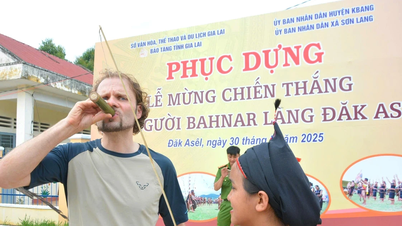



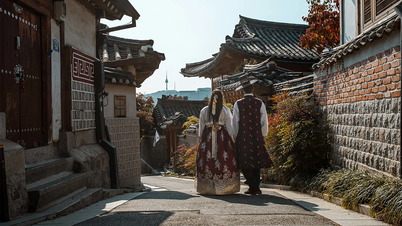


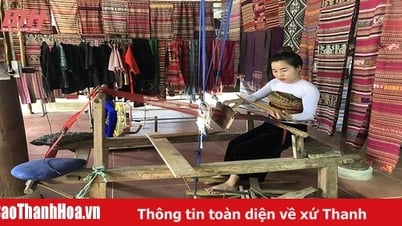
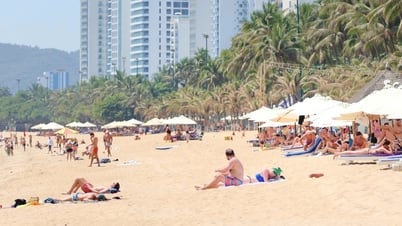

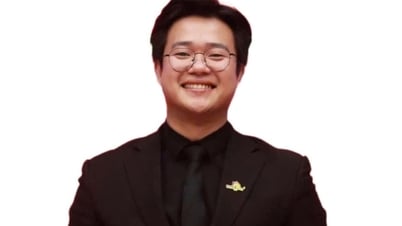
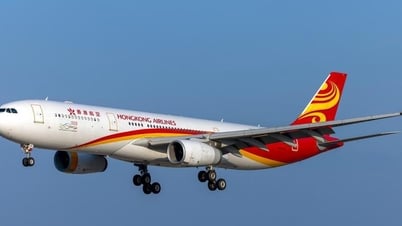
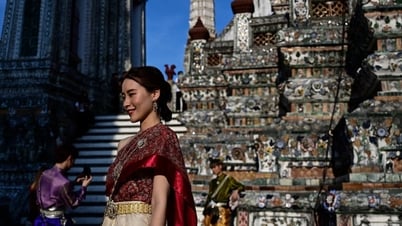
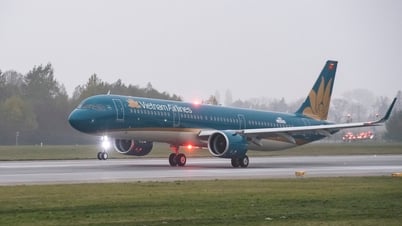
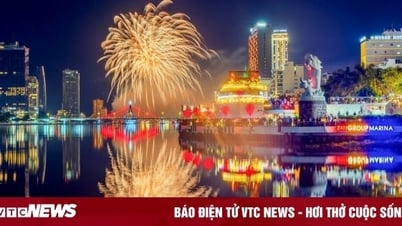






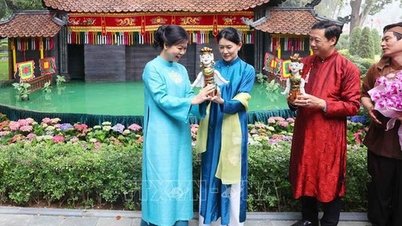
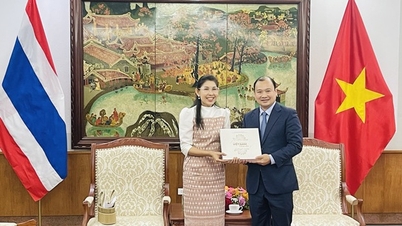
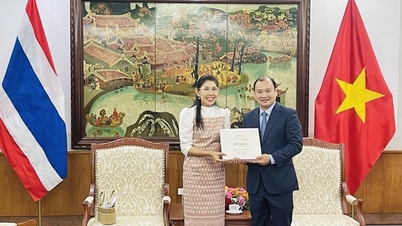

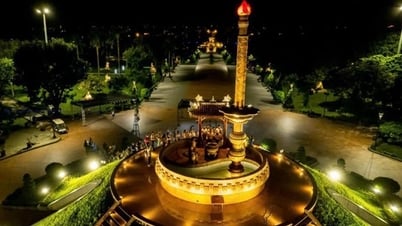































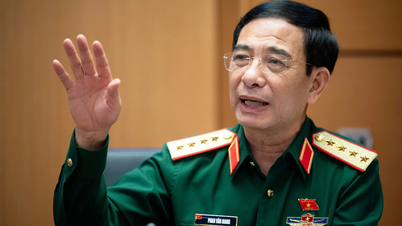

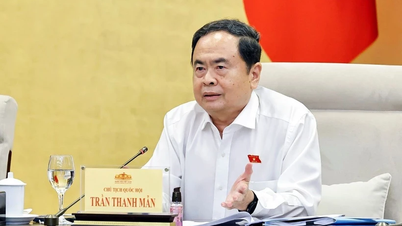

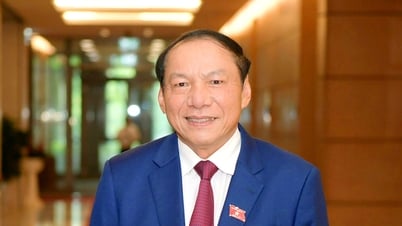




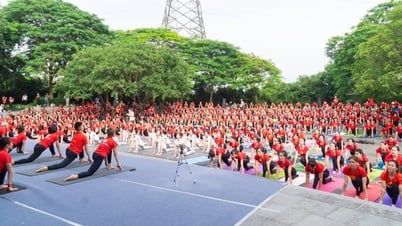

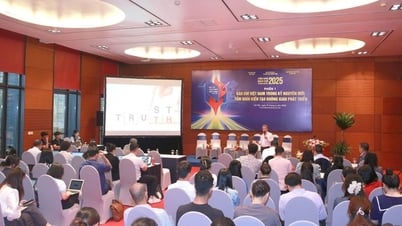
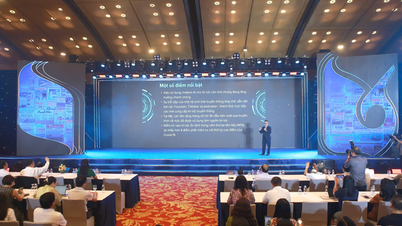





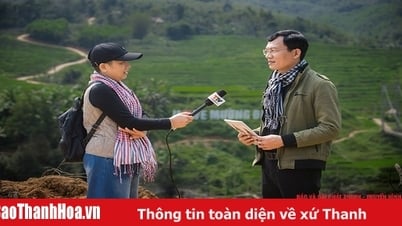



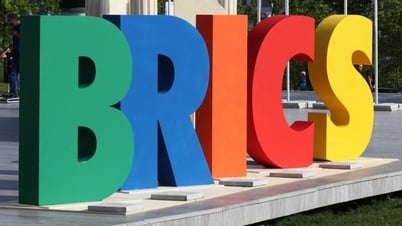

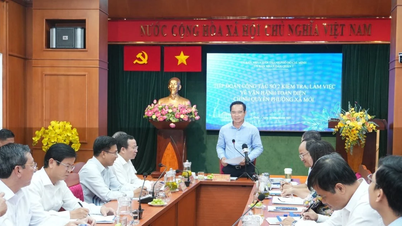



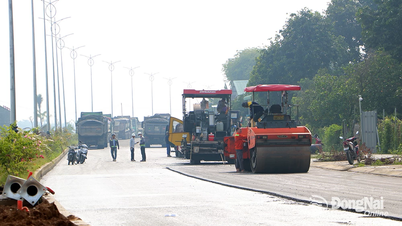












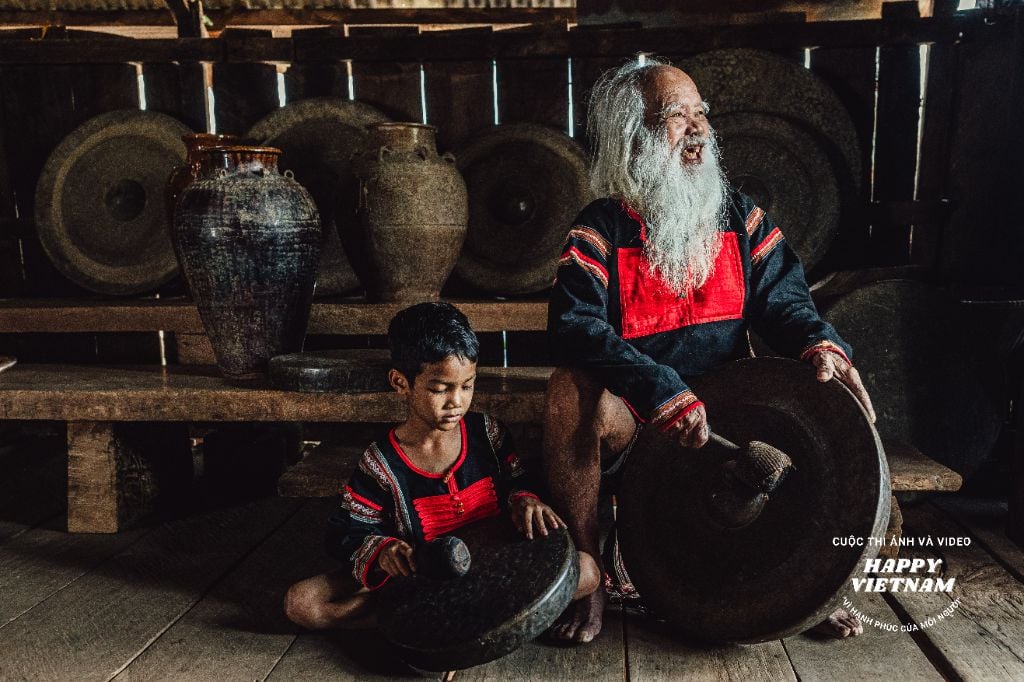
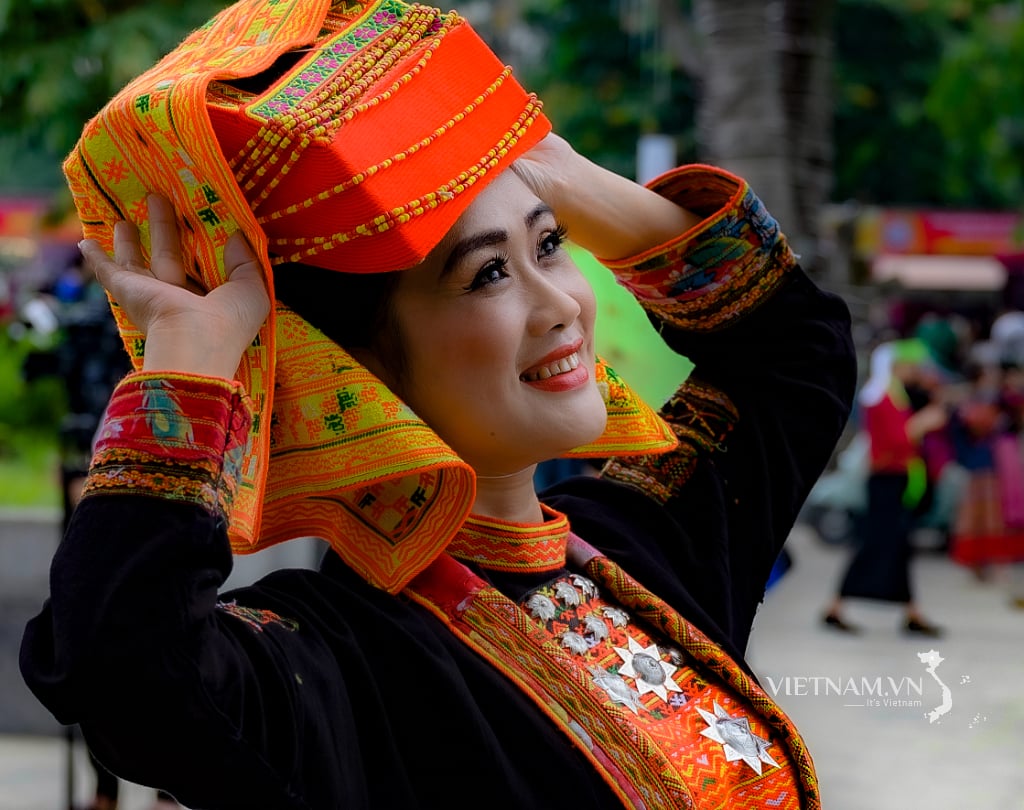

Comment (0)